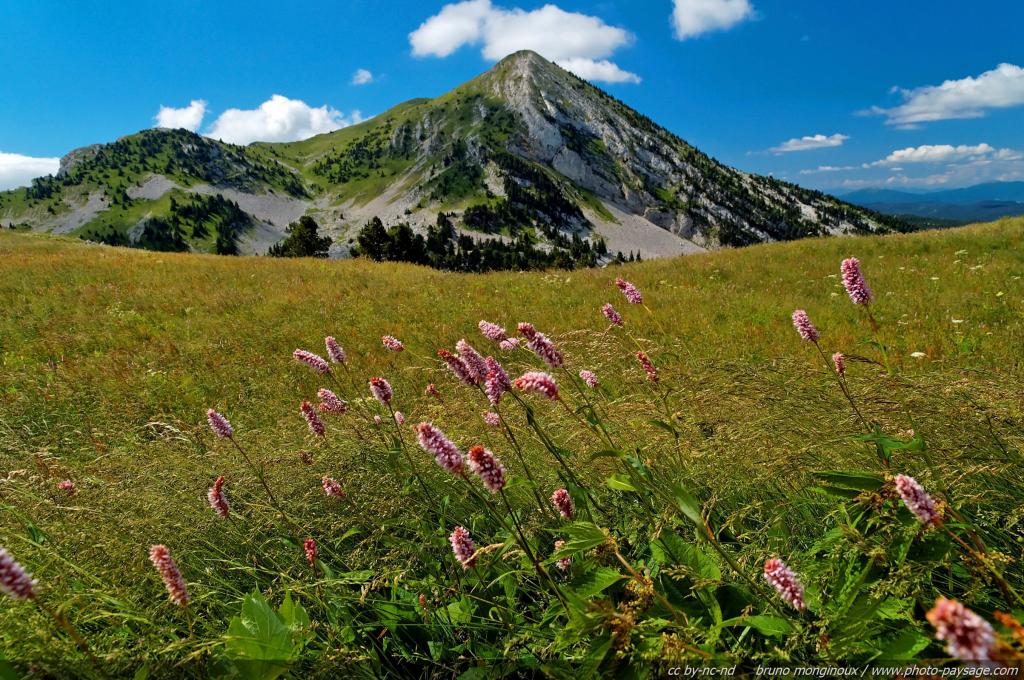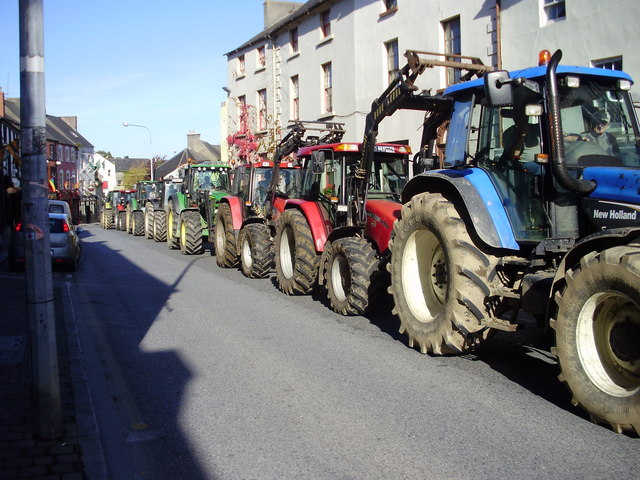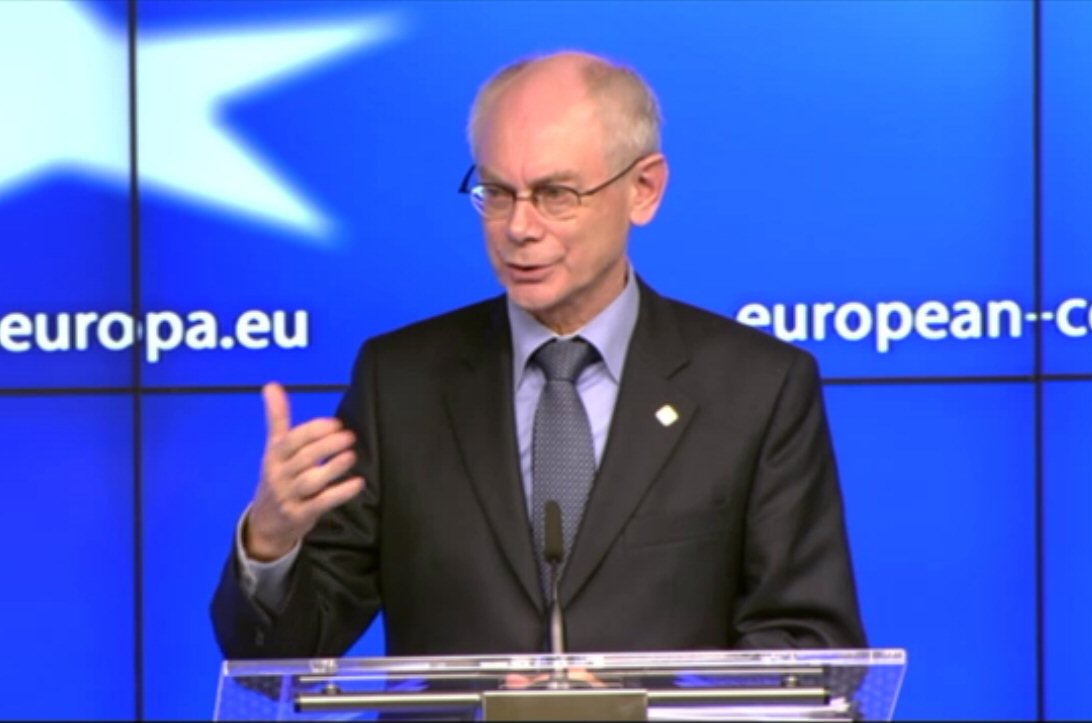I did not get time before Christmas to draw attention to the Forum on the Common Agricultural Policy after 2013, a series of articles on the CAP reform process published in the Nov/Dec issue of Intereconomics. This is a review of European economic policy published jointly by the Centre for European Policy Studies and the Leibniz Information Centre for Economics. I contributed one of the articles, and the contributions of my colleagues are uniformly excellent even if they take different views on some of the main issues.
The full list of contents is as follows:
Jean-Christophe Bureau Where is the Common Agricultural Policy heading?… Read the rest
Welcome to the Irish Presidency
Ireland took over the EU Presidency from 1 January 2013 and the Irish Minister for Agriculture, Food and the Marine, Simon Coveney, will chair the Council of Agricultural Ministers for the next six months. Coveney is an energetic Minister and the Irish have an experienced bunch of officials (see who’s who in the Irish delegation) who will do everything to ensure an agreement on CAP reform on their watch.
Securing an agreement under the Irish Presidency is conceivable. But I am going to argue that the institutional decision-making process between the Council and the Parliament, as well as the linkage with the Multi-annual Frinancial Framework (MFF) negotiations, will make it extraordinarily difficult, even assuming that the European Council will reach an agreement on the next MFF at its next meeting on 7-8 February 2013.… Read the rest
Cyprus Presidency progress report on CAP reform – direct payment controversies
When the Agricultural Council meets tomorrow and Wednesday (18-19 December) it will discuss the Cyprus Presidency’s progress report on CAP reform. As the first day of the December Council is devoted to the annual bargaining over fish quotas, this report will be presented in a public session (with web streaming) on the morning of Wednesday 19th.
The progress report is drawn up by the Presidency on its own initiative and summarises the main amendments to the four main CAP regulations as well as outstanding issues which are left for the Irish Presidency to resolve. As it is highly unlikely that the Irish Presidency will revisit issues unless they are expressly identified as unresolved (in square brackets), the progress report and the accompanying amended draft regulations give us a good idea of the evolution of the Council’s thinking since the end of the Danish Presidency last June.… Read the rest
Correction: Rural development funds allocation
There has been much interest in the provenance of the figures on the allocation of rural development funding between member states which I discussed in this post earlier this week. In the post I said that these were figures circulated by Herman van Rompuy during the special European Council meeting to discuss the MFF on November 22-23. Having spoken with some people who were present at the Council meeting I can now confirm that Van Rompuy did not circulate these figures at that meeting. I believe the figures were prepared by well-placed sources but they are not official figures and I regret any confusion which my incorrect assignation may have caused.… Read the rest
Understanding the 'active farmer' debate
When COMAGRI publish their compromise amendments to the Commission’s draft revised CAP regulations, one issue to look out for will be the proposed definition of active farmers. This has been a difficult area in the direct payments regulation dossier because the issue of how to define an active farmer goes to the heart of the decoupled nature of the SPS system.
The item is on the reform agenda because of repeated criticisms of the Court of Auditors, first in the context of its report on SPS implementation and more recently in its report on SAPS implementation in the new member states.… Read the rest
Rural development funds allocation hits new member states
Update 15 December 2012: I have now learned that I was incorrect to attribute the table of allocation of rural development funds to Van Rompuy in this post and these figures were not circulated at the European Council meeting as I suggest. I regret the error but I have left the post stand unedited as an example of one possible distribution of funds being discussed in the negotiations. But as of this date no official proposed allocation has been made, see fuller discussion here)
In previous posts I had wondered how member states were expected to come to an agreement on the MFF for the 2014-2020 period at the special European Council meeting at the end of the November without being aware of the proposed allocation of Pillar 2 rural development funds under the CAP.… Read the rest
EIP: has the role of knowledge in agriculture been rediscovered?
It is believed by experts and also somehow confirmed by statistics that the European agriculture is losing a battle with international competition in the field of food production. Although the situation is by no means identical everywhere in Europe, an objective observer cannot help concluding that the European agro-food sector has been stagnating; even the Common agricultural policy itself is based on the assumption that agriculture “needs to get” income supports because it is uncompetitive. In some Member States and sectors, substantial direct payments under the Pillar I of CAP even exceed the level of generated income on the market. Thus, it no longer means only a compensation for the lack of competitiveness, but also gives a wrong signal to producers and has negative development consequences.… Read the rest
Council debate on greening raises more questions than answers
Watching the videostream of the Agricultural Council’s greening debate held earlier this week was a rather depressing experience. There is something profoundly wrong with a decision-making system where food and agricultural policy is determined solely by agricultural ministers who speak on behalf of their farmers only, with only the Commission present to even vaguely represent the other interests who have a legitimate right to be heard, including taxpayers, environmentalists and those interested in the impact of EU policies on developing countries
At least in the Parliament, despite the enormous power of COMAGRI under the Parliament’s rules of procedure, final decisions are taken in plenary session where all interests (with the possible exception of taxpayers, as the Parliament does not face an effective budget constraint) are represented.… Read the rest
Nobody cares what we spend our money on
All we know that no decision was made last week in Brussels on how much money the EU should spend in the next programming period (MFF). Besides Van Rompuy’s detailed and complicated figures and plans, it is pretty evident that the debate is about the possibility to redistribute the European Budget among Member States.
If one takes a short look to the operating budgetary balance of the Member States, it becomes evident that Poland, Greece, Hungary, Spain and Portugal are the greatest recipients of the current system, while Germany, France, Italy, the United Kingdom and Netherlands are the biggest contributors in absolute terms.… Read the rest
No decision on MFF budget at first attempt
Van Rompuy’s second attempt (HvR-II) at preparing draft conclusions on the EU’s multi-annual financial framework (MFF) for the European Council which failed to agree them at this week’s special European Council meeting can be summarised in two sentences: (a) within the overall budget, the reinstatement of much of the CAP spending cuts at the expense of all other budget headings (except Administration which stayed the same, though see below); and (b) separately, within Heading 1, a shift from competitiveness (Europe 2020) to cohesion spending.
The detailed figures are shown in the table below. The total budget (including extra-MFF spending) in HvR-II is maintained at exactly the same level as HvR-I but because emergency aid for humanitarian crises in developing countries is moved out of the MFF, the MFF total falls by just over €1 billion euro.… Read the rest






